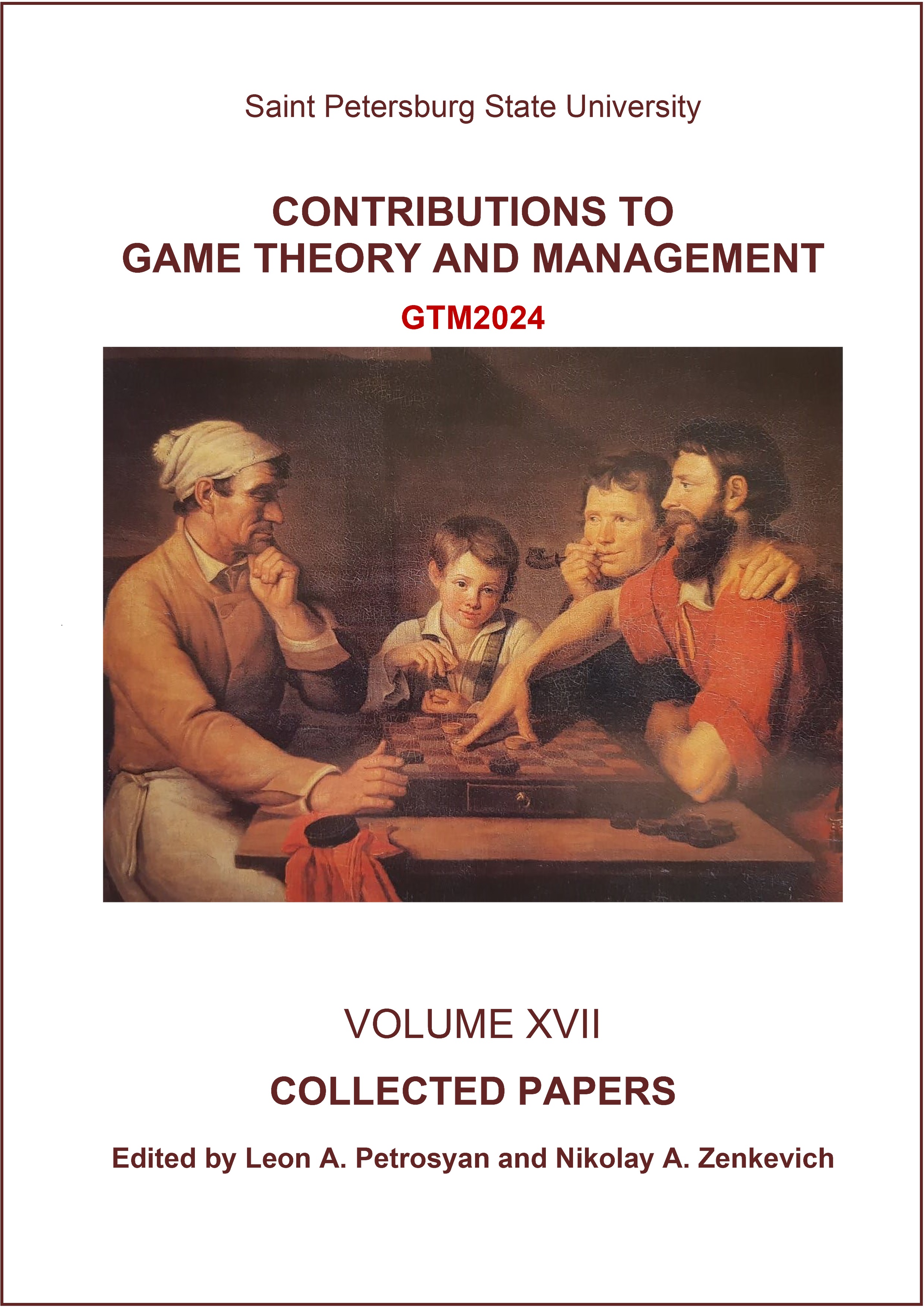Game Theoretic Model of Venture Capital Investment
Abstract
The study focuses on one case of modelling investment decision making when the decision maker has a minimum of information about the state of the environment. Venture capital investment is an example of such a case. The decision maker in this setting is an investor who makes a choice whether or not to invest in a venture capital project based on beliefs (opinions) about whether the project will be profitable in the future. Formalising the problem and proceeding to the mathematical model, we obtain a game with incomplete information, or Bayesian game. The players in this formulation are the Investor and the Project. In this case, we consider a set of states of nature (market) and a set of types that can be possessed by the player Project. Based on this, the profit functions of both players and the set of their strategies are formed. The Bayesian Nash Equilibrium is sought.
Keywords:
investments, venture capital projects, game theoretic model, incomplete information, Bayesian game, Bayesian Nash Equilibrium (BNE)
Downloads
References
Aumann, R., Hart, S. (1992). Handbook of Game Theory with Economic Applications, vol.1, pp. 1–733.
Aumann, R., Hart, S. (1994). Handbook of Game Theory with Economic Applications, vol.2, pp. 735–1520.
Bank, European Investment. Innovation overview, 2023. https://www.eib.org/en/publications/innovation-overview-2023.
Damodaran, A. (2012). Investment Valuation: Tools and Techniques for Determining the Value of Any Asset. 3rd Edition, Wiley, Hoboken.
Friedman, M., Savage, L. J. (1948). Utility Analysis of Choices Involving Risk. Journal of Political Economy, 56(4), 279–304. https://doi.org/10.1086/256692
Gibbons, R. (1992). Game Theory for Applied Economists. Princeton University Press, 144–152.
Greenfield, M. F. (1998). Risk management `Risk as a resourse'. URL: http:// www.hq.nasa.gov/office/codeq/risk/risk.pdf.
Harsanyi, J. C. (1967/68). Games with Incomplete Information Played by Bayesian Players, I-III. Management Science, 14(3 , 159–183 (Part I), 14(5), 320–334 (Part II), 14(7), 486–502 (Part III).
Hu, Yu., Loo, C. K. (2014). A Generalized Quantum-Inspired Decision Making Model for Intelligent Agent. The Scientific World Journal. Article ID 240983, 8 p. https://doi.org/10.1155/2014/240983
Markowitz, H. (1952). Portfolio Selection. The Journal of Finance, 7, 77–91.
Official website of the Russian Venture Capital Investment Association (RVIA). http://www.rvca.ru/rus/.
Pechersky, S. L., Belyaeva, A. A. (2001). Game Theory for Economists. St.Petersburg: Europian University (in Russian).
Petrosyan, L., Zenkevich, N., Shevkoplyas, E. (2012). Game theory. St. Petersburg: BHV-Peterburg, 432 p. (in Russian).
Sharpe, W. F., Alexander, G. J., Bailey, J. V. (1999). Investments. Prentice Hall, 962 p.
Vasin, A., Morozov, V. (2005). The Game Theory and Models of Mathematical Economics. Moscow: MAKSpress (in Russian).
Zamir, S. (2008) Bayesian Games: Games with Incomplete Information. Encyclopedia of Complexity and Systems Science. p. 426–454. Encyclopedia of Complexity and Systems Science. https://doi.org/10.1007/978-0-387-30440-329
Downloads
Published
How to Cite
Issue
Section
License
Articles of "Contributions to Game Theory and Management" are open access distributed under the terms of the License Agreement with Saint Petersburg State University, which permits to the authors unrestricted distribution and self-archiving free of charge.




